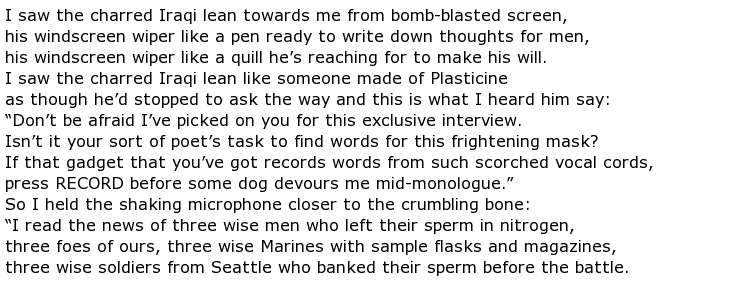 Poet Tony Harrison was born in Leeds in the UK in 1937 and is noted for controversial works such as V that was criticized for its excessive profanity when aired on television. He is recognized as a film and theater poet, a writer from a working class background who has a strong grounding in the classics.
Poet Tony Harrison was born in Leeds in the UK in 1937 and is noted for controversial works such as V that was criticized for its excessive profanity when aired on television. He is recognized as a film and theater poet, a writer from a working class background who has a strong grounding in the classics.
Tony Harrison grew up on the streets of Leeds in the aftermath of the Second World War. His father was a baker and he has always been acutely aware of the wide gulf that separates his humble beginnings and his later career as a poet and academic. He won a scholarship that enabled him to go to Leeds Grammar School which, in turn, led to him enrolling at university to study Classics. His beginnings in the poorer parts of Leeds have influenced his work ever since, the longstanding British problem of class differences and the social conflict it causes.
After teaching far afield in places like Nigeria and Eastern Europe, his first book of poetry appeared in 1970. The Loiners took a look at his relationship with the people of Leeds and marks the beginning of his career as one of the most important post war British Poets. He had already been made the first Northern Arts Literary Fellow in 1967 and through the late 70s he became the resident writer for the National Theatre, winning acclaim for his adaptations of works by Molière and Racine.
From the School of Eloquence and Other Poems came out in 1981 as did A Kumquat for John Keats. The books received good reviews and further cemented Harrison’s credibility as a poet. He became more widely known in the mid-eighties when he wrote V after a visit to his parents’ graves in Leeds.
Dismayed to find the gravestones strewn with graffiti he penned the poem which contemplated the use of the word ‘United’ and the ambiguity of its meaning. It also makes reference to the miner’s strike that was taking place at the time. While it was first published in 1985, it wasn’t until it was broadcast on Channel 4 in 1987 that the poem caused a stir because of its liberal use of profanity, with the content even being raised in parliament.
In 1992, Harrison wrote and published the collection The Gaze of the Gorgon that explored, among other things, the dehumanizing effect of conflict from the Second World War through to the First Gulf War, including A Cold Coming which uses the voice of a dead Iraqi soldier to highlight the stupidity of war.

Conflict is something that he returns to frequently in his works and in 1995 he went to Bosnia to write poems commissioned by the Guardian newspaper. Neither has he shied away from criticizing those in power, lambasting both Blair and Bush in his Krieg Anthology. When explosions went off in London in 2005, Harrison wrote Shrapnel which connected his boyhood in the blitz to the 7/7 bombers who were from his home town.
Now living in Newcastle Upon Tyne in the North East of England, Tony Harrison continues to write and push the boundaries.

